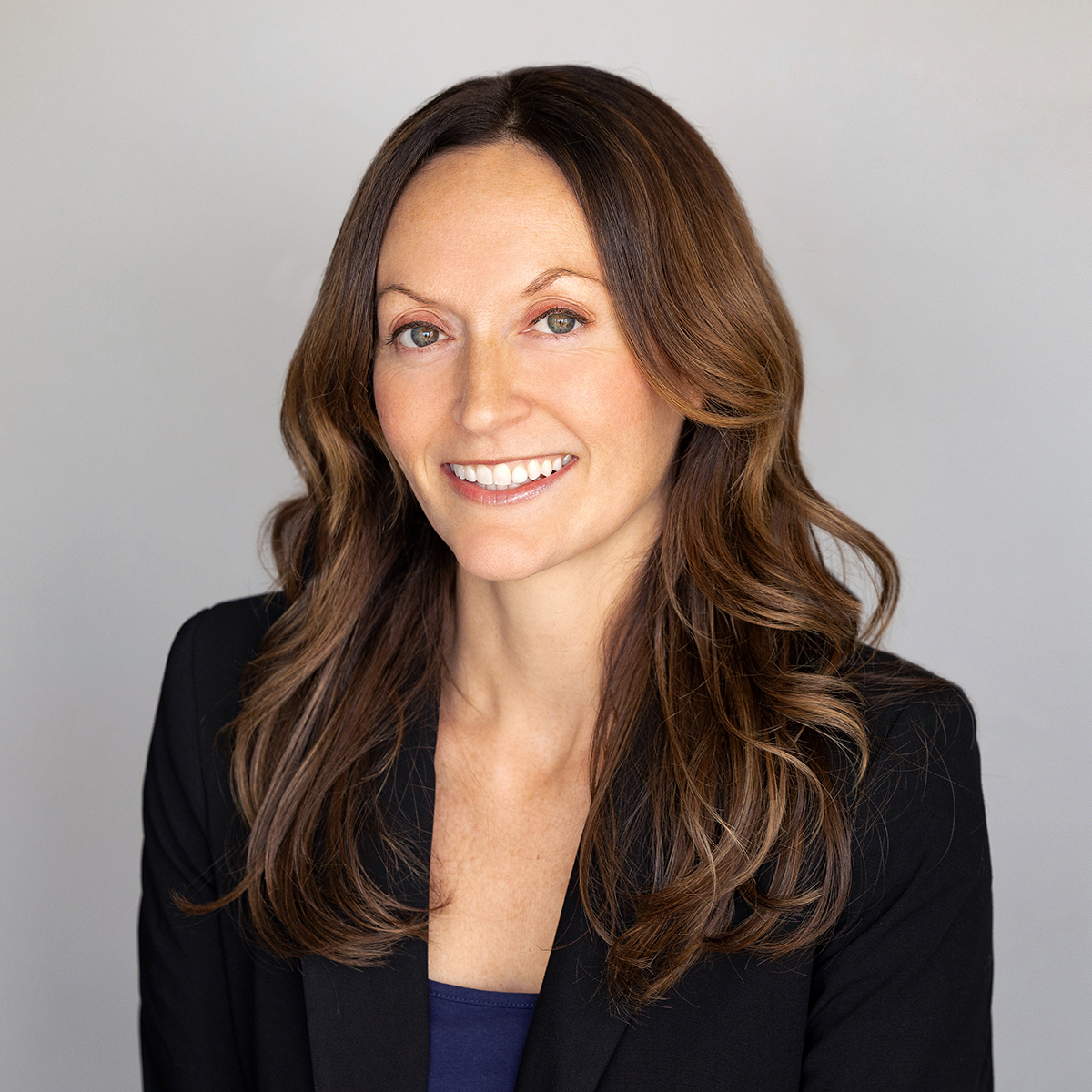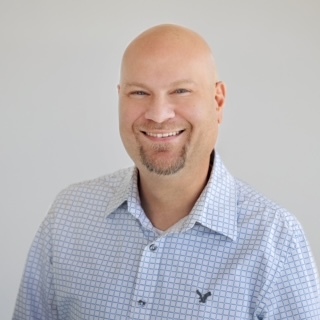
Erica Jones
Senior Manager, People and Culture
“I wish people would try to advocate for themselves more, because I feel like there’s this power struggle and people don’t feel like they can.”
Erica Jones’ career has been driven by her passion to help people and make a difference in their lives. It was this passion that led Erica to search for work in the mental health field after graduating from college with a degree in psychology. She found a role at Fountain House—a nonprofit organization serving adults with mental illness—first as an executive assistant, then incorporating social practitioner aspects into her role. Her work involved working side by side with members, offering comprehensive support services. This included assisting with employment opportunities, facilitating education and skill development, providing housing assistance, coordinating social and recreational activities, and delivering essential health and wellness services. The skills needed for this work came naturally to her.
Erica then found her way to HealthBegins. She started as a Business Operations Manager before moving into her current role as Senior Manager of People and Culture. In this role, Erica manages the recruitment and hiring process for the organization and develops and hones the company culture. When she isn’t pursuing her professional passions, she’s pursuing her personal ones—writing, being outdoors, and advocating for animal rights. With her rescue dog Asa by her side, you can find Erica hiking, taking road trips, and writing her first bestseller.
When did you first recognize the reality of health inequity?
I lived on a small Caribbean island for about a year, and that experience was a real eye-opener. The state of healthcare on that island was really bad. There was one hospital, and let’s just say that people didn’t really trust it. It was so bad that people would go to either Florida or another neighboring island to have surgery or give birth. As I got to know more people while living there, I learned leaving the island for healthcare was the norm. Pregnant women especially would leave the island before their baby was born to make sure they had access to quality healthcare in case anything happened, to ensure their baby would survive. People who couldn’t afford to leave the island were kind of stuck. It really showed me how unequal access to health care can be depending on your financial situation.
What life experiences shape your understanding of health equity?
There was a period in my life a few years back where I was in between jobs. It was a tough time financially, and the only healthcare option available to me was COBRA. But the cost was really expensive—$900 a month—which was not something I could afford. I declined, and I think I was without healthcare coverage for about six months. It was during this time that I realized the importance of access to health care. My mom suggested I sign up for Medi-Cal, told me it was free health care, and so I did. My experience with Medi-Cal was pretty eye-opening. Trying to schedule a doctor’s appointment as a Medi-Cal enrollee was a very frustrating experience. I remember making countless calls that were met with rejection after mentioning my insurance was Medi-Cal. It gave me insight into the barriers people face in accessing health care, especially those relying on programs like Medi-Cal. In the end, I decided to pay out of pocket to go see a doctor, which I know not everyone can do. This experience significantly broadened my understanding of the disparities in the healthcare system and obstacles that prevent people from not only receiving health care but seeking it out, knowing how difficult the system can be.
Also, a few months ago I moved into a rental property that turned out to be plagued by toxic mold. The house had so much mold that I had extreme physical symptoms after spending only one night there.
I got out of the house and temporarily relocated to my mom’s place. Due to our doggies not getting along, I had to bounce around to different family and friend homes over the next 6 weeks. At the same time, I was not only entangled in a legal battle with the property management company, but was also navigating the nuances of getting the city inspector to assess the property. During this whole time, I’m working full-time, bouncing from place to place with my dog. My days were spent working and my nights were spent researching housing law, writing emails to lawyers, looking up information on the property owner, public records on the property, etc. My friend who works in a law office was my co-pilot. With her support, I drafted emails and engaged in negotiations.
Eventually, after multiple exchanges and the revelation of compelling evidence, the property owner agreed to refund my deposit and all rent payments. They also committed to rectifying other serious issues with the property. This outcome was not only a personal victory but also a step towards ensuring the safety and well-being of future tenants who might have fallen victim to similar circumstances.
Because most of my work with HealthBegins is on the backend (Ops and HR), there are times I don’t feel as connected to actual outcomes the way that some of my colleagues are. This experience has brought me closer to understanding the real impact of our efforts at HealthBegins, including our support for medical-legal partnerships that ensure people have access to safe and healthy homes. From this, I’ve become inspired to make advocating for safe and equitable housing a part of my life.
What do you wish everyone else understood about health equity?
You can make a difference behind the scenes or even on the sidelines. I think sometimes there’s a bit of a misconception that you have to be on the frontlines or leading some groundbreaking initiative to make a difference in health equity. But there’s so many ways to help, and it’s not all frontline work. Collective impact is what sometimes influences the big changes. We all have our own unique talents and abilities that can be leveraged in any field, including health equity.
How did you decide that you wanted to make health equity your work?
I’ve always just wanted to help people and work for organizations that help people in some way. It was serendipitous that HealthBegins showed up on my path leading me into health equity work.
Describe a problem that people involved in health care face, be they practitioners or patients, that you would like to solve.
From the patient perspective, I feel like doctors can be too dismissive. This one is personal to me because I’ve been dismissed by doctors and physical therapists multiple times. And I know I’m not alone. There’s this frustrating thing that happens where you go to the doctor knowing something’s wrong (because you know your body), and maybe you even have an idea about what’s going on. But your doctor shuts you down and dismisses your intuition. I feel like there’s a lack of respect around a patient’s knowledge of their own body.
For me, this is really a big thing about advocating for yourself. And I wish people would try to advocate for themselves more, because I feel like there’s this power struggle and people don’t feel like they can. I wish that doctors would give patients more credit for knowing their bodies and wish they would listen better.
What advice would you offer others striving to advance health equity?
Have fun along the way! Advancing health equity is such important work. But also challenging. The nature of this work can be really fast-paced, and it’s important to find moments of joy along the way and celebrate the little wins.
Tell us a little about the people who shaped your values.
I have a lot of strong women in my family. The two people that come to mind are my mom and my grandma. I learned so much about advocacy and personal independence from them. I have a younger brother with Down Syndrome, and while growing up, my mom had so many challenges getting him the resources he needed. There just wasn’t a lot available at the time. I remember her calling so many organizations trying to get help. She had to fight really hard just to get him an aide in his classroom. Everything seemed like a challenge. But I really liked seeing her perseverance and advocacy for her children. To her, every kid was going to have an opportunity—special needs or not.
And then there’s my grandma. This silently strong independent woman who to this day, at 85, is out mowing lawns, maintaining birds and chickens, and getting around despite living with a permanently broken arm. I feel like my mom and grandma might not think of themselves as strong women in the traditional sense, but to me, they’re the epitome of strength. Seeing their resilience and determination around so many life challenges and episodes of grief has helped shape some of my own values.
What brings you meaning in your life outside of work?
I love animals. Especially dogs. I’m really passionate about everything from rescuing pups to advocating for their rights. There’s something incredibly fulfilling about knowing you’re making a difference in the lives of these sweet souls that have been abandoned or discarded.
Looking 10 years into the future, describe what you hope to have achieved and how you hope the world will be different.
I hope that in 10 years I’ll still be this happy person just following my path and continuing to do what feels right. Helping people and animals along the way. But in terms of actual issues, I really hope that affordable health care is available for all people. I also hope that lots of the animal shelters get emptied and something can be done regarding unethical backyard breeders who really heavily contribute to the problem with the shelters.
What was your first job and what did you learn from it?
I have five younger brothers and was the built-in babysitter. I was also the neighborhood babysitter. I learned lots of patience, how to stop babies from crying, and how to make kids think cleaning was fun. I could turn literally anything into a game. My inner child is still alive and well, and I contribute part of that to spending so much time around kids.
If you were not working in this field, what other career do you like to imagine having?
I like to imagine being a book author. When my first book is published, I’m just going to be an author bouncing around, going to book parties, spending time in New York, having book readings, and sitting on a beach writing. That’s my really fun thought.
Who inspires you?
I’m inspired by authentic people who follow their true inner calling. Anyone who is following their path and their passion, while navigating the twists and turns of life, inspires me. People who change their mind and direction also really inspire me. If you never change your mind, you never change your life.
Vsem Yenovkian is the Communications Manager at HealthBegins.
Featured Content
Staff Spotlight: Erica Jones, Following Her Path and Passion to Help People
“I wish people would try to advocate for themselves more, because I feel like there's this power struggle and people don't feel like they can.”
Staff Spotlight: Kyron Pierce, The Eagle Scout with a Passion For Helping People Lead Healthy Lives
“[Health equity] is very hard work and it might be some years for us to see the fruits of our labor, but it'll be worth it when you do produce it.”
Staff Spotlight: Alejandra Cabrera, Perfectly Imperfect Artist and Health Equity Advocate
When I work with people and communities, I always think back to this sense of not belonging and it drives me to continue to do the heart-work we need to do to advance health equity.


